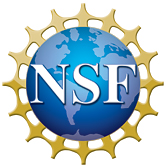Funded by the National Science Foundation, ICAC is a research-based project to integrate technology into the fourth and fifth grade STEM (science, technology, engineering, and mathematics) curriculum in Birmingham City Elementary Schools.

The Goal - Increase the number of minority students entering STEM careers
Research suggests that, at the very time our nation most needs promising students to enter STEM majors and careers, their interest is on the decline. Currently these fields are somewhat homogeneous by ethnicity and gender. Research shows that a lack of diverse perspectives inhibits creativity, innovation, and productivity.
FACT: The percentage of ACT-tested students interested in majoring in engineering dropped steadily from 7.6% to 4.6% between 1996 and 2006.
FACT: The percentage of ACT-tested students interested in majoring in computer and information science dropped steadily from 4.5% to 2.9% between 2001 and 2006.
Not since the mid-1950's has our nation faced a more serious shortage of skilled STEM workers. Students who enter these fields have often decided to do so by middle school. We must spark their interest early and involve parents so they can plan high school courses strategically in preparation for college.
ICAC's Three Primary Research Aims
Evolve an optimal, scalable STEM curriculum to ensure productive participation among school administration, teachers, students, and parents.
Enhance students' understanding of computation, interest in STEM careers, and communication skills.
Assess the effects of the ICAC project on:
- Student STEM engagement and performance
- Teacher and student computing-specific confidence and utilization
- Student interest in technology and STEM careers
- Parental attitudes toward STEM careers and use of technology in education.
The ICAC Model
Build technology-teaching capacity through teacher professional development, teacher-to-teacher mentoring, and curriculum development.
Develop students' 21st century learning skills - creativity, innovation, problem solving, communication, and collaboration - through hands-on, inquiry-based lessons, collaborative learning opportunities, and integrating subjects.
Increase exponentially the number of students participating in STEM subjects, especially computational subjects, through student-to-student mentoring in after-school programs.
Foster parents' awareness of STEM careers and how to prepare for the future through summer camp project presentations and monthly technology workshops.